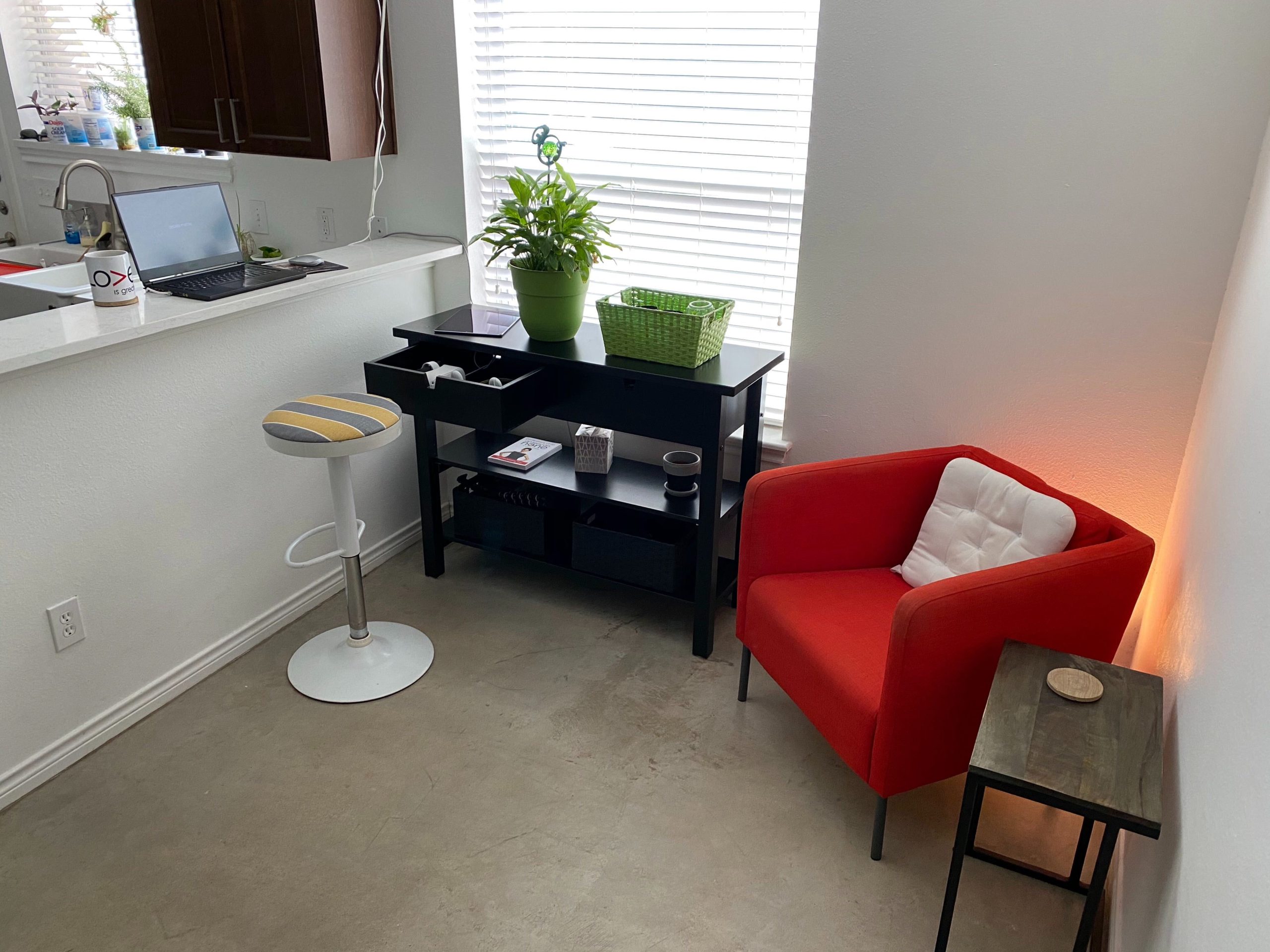It all started one summer, passing through New Mexico while driving from Colorado back to Texas. This whacked out but curiously logical guy was on the radio telling listeners how to get out of debt. I made a mental note that I'd like to be debt free, and intended to find him again. He was crazy, a crazy I liked, and besides – who doesn't want to be debt free?
A year and a half later (October, 2006) a friend of mine asked if I'd heard of a guy named Dave Ramsey. My “debt free” mental note was nowhere in the archives, so of course I said “No.” He suggested that I download the Dave Ramsey podcast and give him a listen. That I did, then it hit me like a ton of bricks, “This is *that* guy!” We bought his book The Total Money Makeover along the way – the advice was simple and worked well in our minds.
Here are the numbers we were dealing with: a $23k personal loan, $24k in two cars, and a few thousand on credit cards ($50k for for the math deficient). We hated opening Quicken to see the red “net worth” number, but at least we knew where we were – good or bad.
Before I get too far in to this, I want to just stop for a second and get something off of my chest. There will be a number people that think that budgeting is something poor people do to squeeze every penny out of the bank account. That if you budget, you must not make enough money to survive, or that if you budget you're somehow telling “the universe” that you're poor. That is a load of crap. You budget so that you know exactly where your money is going, no matter how much money you have. If you don't know where every penny is going, you don't know how much you have to invest. Or how much to use to pay off debt. There, I said it, budgets rock!
The plan? Live on less than you make (a lot less if you can), and use the rest to pay off debt. Once you're out of debt, build wealth. Duh. Living on less than you make is pretty easy if you make a budget every pay period. Not every month, because there is no magical month that a budget will always apply to. Expenses change, and your budget needs to reflect that.
Make a written budget every pay period. Make sure you know where every single penny goes from that check, so you don't wonder where all of those pennies went. It may take a couple of months to get this right.
We weren't exactly living paycheck to paycheck back then, but at the end of the month we had practically nothing left. We had no real savings, and no backup plan other than credit cards in case something big happened.
I made a vow to myself to eat lunch on $10 or less every day, eating decent food too, not just fast food crap. Surprisingly this is a really easy thing to do. I have friends that try to eat lunch on $5 per day now. I dropped my coffee expenditures to around $100/mo too. I work in coffee shops every day, not for the coffee shops, but because I'm a cafe warrior. I run a small software company and use coffee shops as my office (that is another story all together).
Those two things alone reduced the budget by couple of hundred dollars. Eat at home for breakfast and dinner. Buying groceries is alway cheaper than eating out, and you can actually eat better. If you're in a relationship, cooking for your partner is always a grand slam. Make an event out of it and use it to expand your palette.
So we formulated a plan based on Dave Ramsey's “Baby Steps.”
1. The $1,000 Emergency Fund – we put ours in a savings account that was tied to the checking account as overdraft protection. That helped us get over using the credit cards as a buffer. We found that we never had an expense so large that we needed more than $1,000.
2. Pay off all debt using the Debt Snowball – pay off the debts, smallest to largest, using the payment from the last one on the next. Eventually, everything is paid off and the fun starts. Interest isn't relevant in the conversation because the excitement and the feeling of progress by paying off debts is extremely valuable. Don't get out the calculator, it doesn't matter. Pay them off, smallest to largest, and you'll see how fun getting out of debt can be.
We started with the smallest card, then the other. Closing credit cards is fun. In the meantime I made the incredibly difficult decision to rid myself of my car and the $800/mo it was costing us. Man I loved that car, but $580 for the payment, another $100 for insurance, and $120 or so in gas per month? Didn't love that. My car took two months to sell, but once it did we were able to apply that money to the other car (it was next in line).
With the second car paid off ($300/mo), my car sold ($800/mo), and the credit cards gone ($180/mo), the personal loan was up next. The friend that loaned us the money was getting a little impatient with us given how much debt we were paying off, but he was pretty excited to see the progress come so quickly when it was his turn. We were paying that debt off quickly. Very quickly.
It is said that once you start doing smart things with money, money finds you. Whether or not I believe that in a metaphysical sense is a matter of debate, we did see a nice tax return (the largest in years) and had an investment pay decently that spring. We didn't get raises during that period, and still haven't, but the investment keeps making returns and by getting out of debt, we've found a lot more money in our salaries.
We wrote the last check on September 18, 2007 – we were debt free in less than a year.
3. 3 to 6 months of expenses in savings – we chose a high interest savings account… and decided on 3 months of expenses because two of us were working. By extension, that means 6 months as long as we don't both lose our jobs. We've completed this step. Reaching this goal while debt free was relatively painless – we were already trained by the budget.
4. Invest 15% of household income into Roth IRAs and pre-tax retirement. In 2007 – for the first time ever – we fully funded our IRAs. We snuck it in just under the wire, but we did it.
So now we're working on 5 through 7:
5. College funding for children – We plan on having Z go to a state university and will have set the ball in motion closer to that time. He already understands the concept of being paid (we give him a quarter to clean up before bed) and will understand how to manage money from a very, very early age.
6. Pay off your house early – we don't own yet, but we're saving for it. Every now and then we wonder if buying is even for us given that we've moved ever few years since we've been together. We'll see how this goes. If nothing else, we can always do the 100% down thing later if we wait long enough.
7. Build wealth and GIVE! – This excites me the most. I already have a desire to give back to the world, but I think that is more about maturity and growth. Once I have the funds to help with it, all will be well.
The advice is very simple if you follow it and I hope you've had enough of debt to make it so. Imagine waking up one day to find that interest is paying you instead because you have no debt.
One last thing. Get rid of the expensive car debt and buy a beater. I bought a 1989 Montero for $1,700 cash. If you can let go of what people think of you, getting out of debt will be easy.

